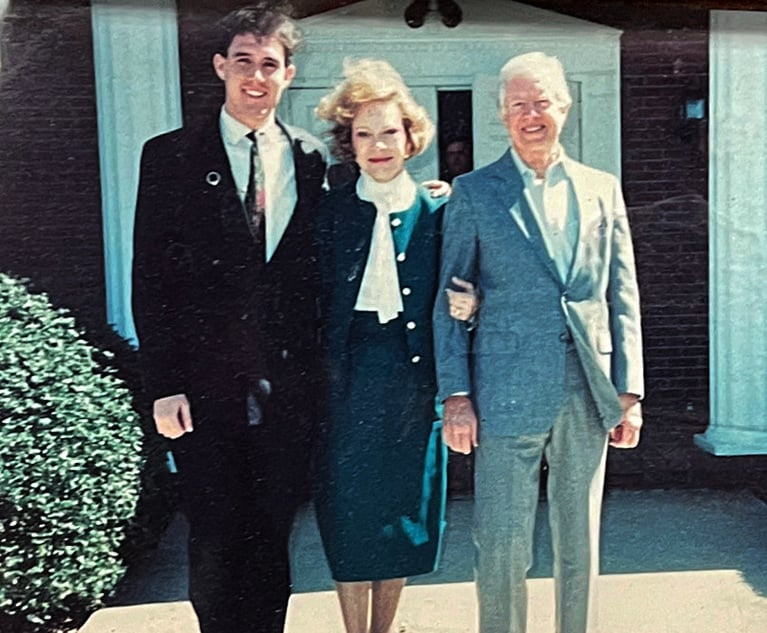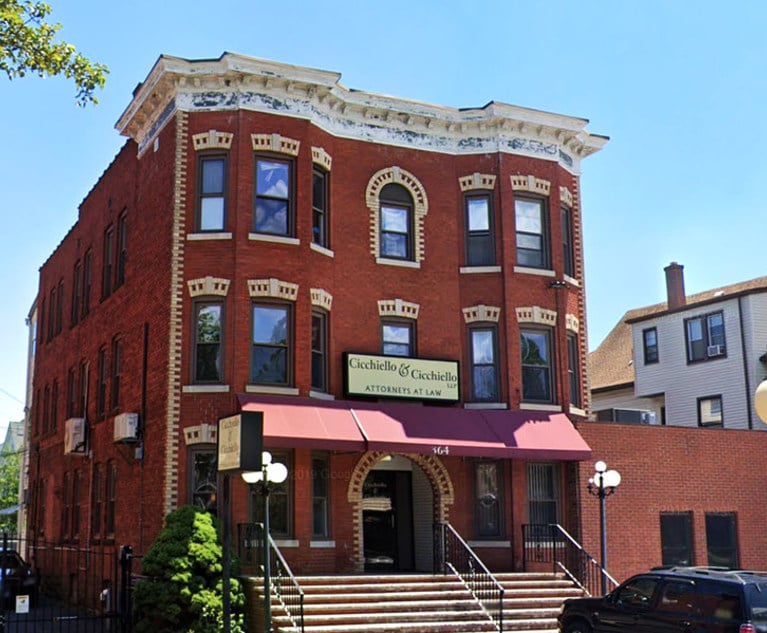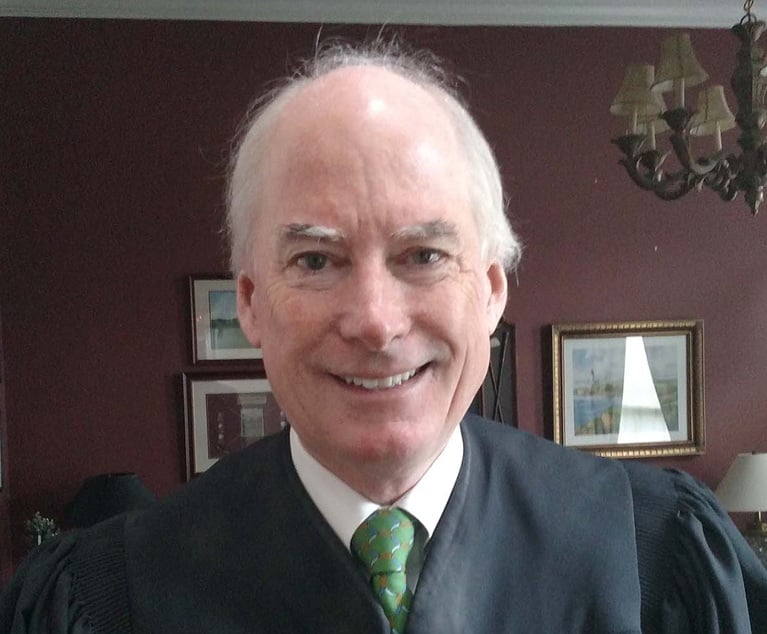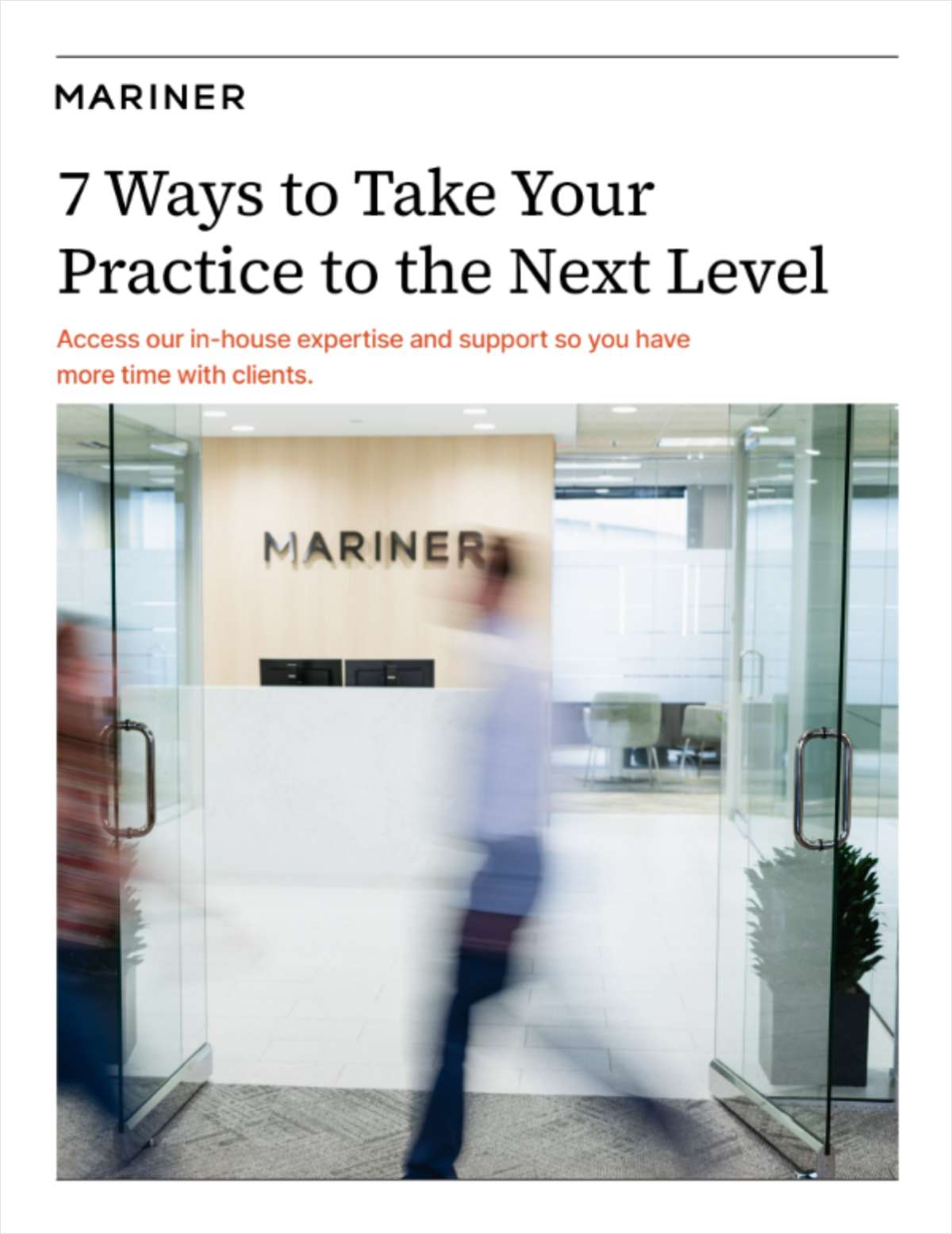2 Conn. Attorneys Challenge State's New Rule 8.4(7) Over 'Vague' Speech Limitations
The plaintiffs claim that the rule "deprives attorneys of the ability to discern what speech and conduct is proscribed, and they thus cannot know for sure in advance how to conform their conduct to the terms of the rule … [and] grants enforcement personnel too much discretion to decide what speech is sanctionable and what speech is not."
November 19, 2021 at 08:57 AM
6 minute read

Two Connecticut lawyers have gone to federal court seeking to enjoin the enforcement of new Rule 8.4(7), which provides, inter alia, that "[i]t is professional misconduct for a lawyer to … [e]ngage in conduct that the lawyer knows or reasonably should know is harassment or discrimination on the basis of race, color, ancestry, sex, pregnancy, religion, national origin, ethnicity, disability, status as a veteran, age, sexual orientation, gender identity, gender expression or marital status in conduct related to the practice of law." Anyone who thought that we had finally put this issue to bed is going to have to wait until we see whether our version of this model rule passes muster.
The rule, which was set to take effect on Jan. 1, 2022, is Connecticut's version of ABA Model Rule 8.4(g), which has been working its way from concept to law for well over 25 years. Many states had some sort of provision addressing the issue in their general standards, preamble, lawyers' oaths or rule commentary when the present iteration as a Rule of Professional Conduct was promulgated in 2017. Many states have now adopted it. Something like a half-dozen states, including Texas, Montana and Louisiana, have refused to adopt the rule, citing First Amendment issues. In Pennsylvania, a federal court enjoined enforcement of the rule and the state has not chosen to appeal that order while the merits are being litigated.
This content has been archived. It is available through our partners, LexisNexis® and Bloomberg Law.
To view this content, please continue to their sites.
Not a Lexis Subscriber?
Subscribe Now
Not a Bloomberg Law Subscriber?
Subscribe Now
NOT FOR REPRINT
© 2025 ALM Global, LLC, All Rights Reserved. Request academic re-use from www.copyright.com. All other uses, submit a request to [email protected]. For more information visit Asset & Logo Licensing.
You Might Like
View All
Lessons in Mediation & Negotiation: Attorneys' Reflections on Jimmy Carter

Managing Partner Vindicated in Disciplinary Proceeding Brought by Former Associate
5 minute read
2nd Circuit Revives Connecticut Lawyers' Challenge to Anti-Discrimination Ethics Rule

Trending Stories
Who Got The Work
J. Brugh Lower of Gibbons has entered an appearance for industrial equipment supplier Devco Corporation in a pending trademark infringement lawsuit. The suit, accusing the defendant of selling knock-off Graco products, was filed Dec. 18 in New Jersey District Court by Rivkin Radler on behalf of Graco Inc. and Graco Minnesota. The case, assigned to U.S. District Judge Zahid N. Quraishi, is 3:24-cv-11294, Graco Inc. et al v. Devco Corporation.
Who Got The Work
Rebecca Maller-Stein and Kent A. Yalowitz of Arnold & Porter Kaye Scholer have entered their appearances for Hanaco Venture Capital and its executives, Lior Prosor and David Frankel, in a pending securities lawsuit. The action, filed on Dec. 24 in New York Southern District Court by Zell, Aron & Co. on behalf of Goldeneye Advisors, accuses the defendants of negligently and fraudulently managing the plaintiff's $1 million investment. The case, assigned to U.S. District Judge Vernon S. Broderick, is 1:24-cv-09918, Goldeneye Advisors, LLC v. Hanaco Venture Capital, Ltd. et al.
Who Got The Work
Attorneys from A&O Shearman has stepped in as defense counsel for Toronto-Dominion Bank and other defendants in a pending securities class action. The suit, filed Dec. 11 in New York Southern District Court by Bleichmar Fonti & Auld, accuses the defendants of concealing the bank's 'pervasive' deficiencies in regards to its compliance with the Bank Secrecy Act and the quality of its anti-money laundering controls. The case, assigned to U.S. District Judge Arun Subramanian, is 1:24-cv-09445, Gonzalez v. The Toronto-Dominion Bank et al.
Who Got The Work
Crown Castle International, a Pennsylvania company providing shared communications infrastructure, has turned to Luke D. Wolf of Gordon Rees Scully Mansukhani to fend off a pending breach-of-contract lawsuit. The court action, filed Nov. 25 in Michigan Eastern District Court by Hooper Hathaway PC on behalf of The Town Residences LLC, accuses Crown Castle of failing to transfer approximately $30,000 in utility payments from T-Mobile in breach of a roof-top lease and assignment agreement. The case, assigned to U.S. District Judge Susan K. Declercq, is 2:24-cv-13131, The Town Residences LLC v. T-Mobile US, Inc. et al.
Who Got The Work
Wilfred P. Coronato and Daniel M. Schwartz of McCarter & English have stepped in as defense counsel to Electrolux Home Products Inc. in a pending product liability lawsuit. The court action, filed Nov. 26 in New York Eastern District Court by Poulos Lopiccolo PC and Nagel Rice LLP on behalf of David Stern, alleges that the defendant's refrigerators’ drawers and shelving repeatedly break and fall apart within months after purchase. The case, assigned to U.S. District Judge Joan M. Azrack, is 2:24-cv-08204, Stern v. Electrolux Home Products, Inc.
Featured Firms
Law Offices of Gary Martin Hays & Associates, P.C.
(470) 294-1674
Law Offices of Mark E. Salomone
(857) 444-6468
Smith & Hassler
(713) 739-1250










